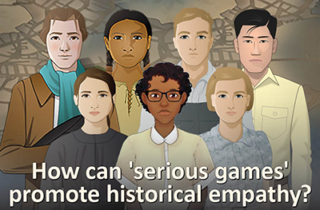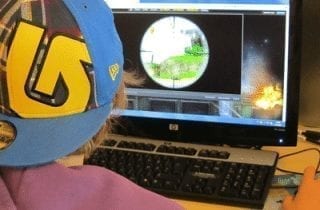Presented by Nick Night, Game Producer, Venture Valley; and Carrie Willis, STEAM and Technology Director, Valley Preparatory School (CA)
Presented by Jennifer Abramowski, Senior Educator Engagement Specialist, The WNET Group; Lily Exantus, Program Coordinator, Professional Learning, District of Columbia Public Schools (DC); and Hai Lun Tan, Research Associate, Education Development Center
Presented by Dr. Steve Ritter, Founder and Chief Scientist, Carnegie Learning; and Kyla Gibbons, Manager of Professional Learning, Carnegie Learning
Presented by Michelle Chen, Senior Producer, Kids’ Media and Education, The WNET Group; Lily Exantus, M.Ed., Program Coordinator, District of Columbia Public Schools; Dr. Charity Brown Griffin, Associate Professor in the Department of Psychological Sciences, and Director of the Minority Academic Achievement and Development Lab, Winston-Salem State University; and Dr. Pamela Walker, Assistant Professor of History, College of Arts and Sciences, Texas A&M University–San Antonio
It may lack sweat equity, but it’s up there with even the most physically demanding of sports. Esports, the competitive side of video gaming, is exploding. And K-12 schools are buying in because it’s not only fun but also a viable educational tool! A recent edWebinar sponsored by Common Sense Education, “Ready Player One: Esports in K-12,” highlights why esports has taken hold in schools. Research-based evidence affirms its highly positive impact on students’ academic achievement, soft skills, and socio-emotional well-being.
This edWebinar will focus on the why and the how relevant to getting started with esports programs in schools, districts, and/or counties.
This edWebinar will show you how easy and painless device implementation can be! Learn how you can improve your student readiness for technology, enrich learning, foster 21st-century skills, and promote academic development.
Presented by Eisha Buch, Senior Manager of Education Programs, Common Sense Education Hosted by Common Sense Education and Sponsored by Symantec Watch the Recording If you view the recording and would like a CE certificate, join the Digital Learning & Leadership community and go to the CE Quizzes link in the Community Toolbox. Watch the… read more →
In this edWebinar, Matthew Farber, Ed.D., social studies teacher and game-based learning author; and Steve Isaacs, video game design and development teacher, will discuss how games can create a shared experience for students, much like a field trip.
In this webinar, Matthew Farber will share about his use of tabletop game jams in his middle school social studies classes as well as his digital game jams in the after-school club he advises.










